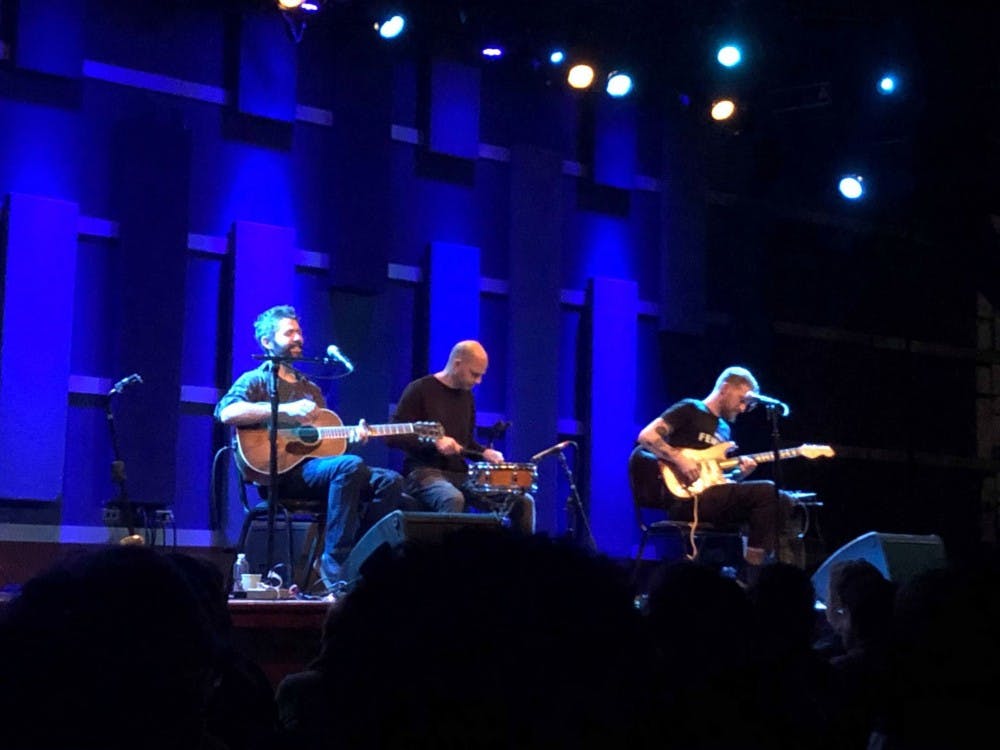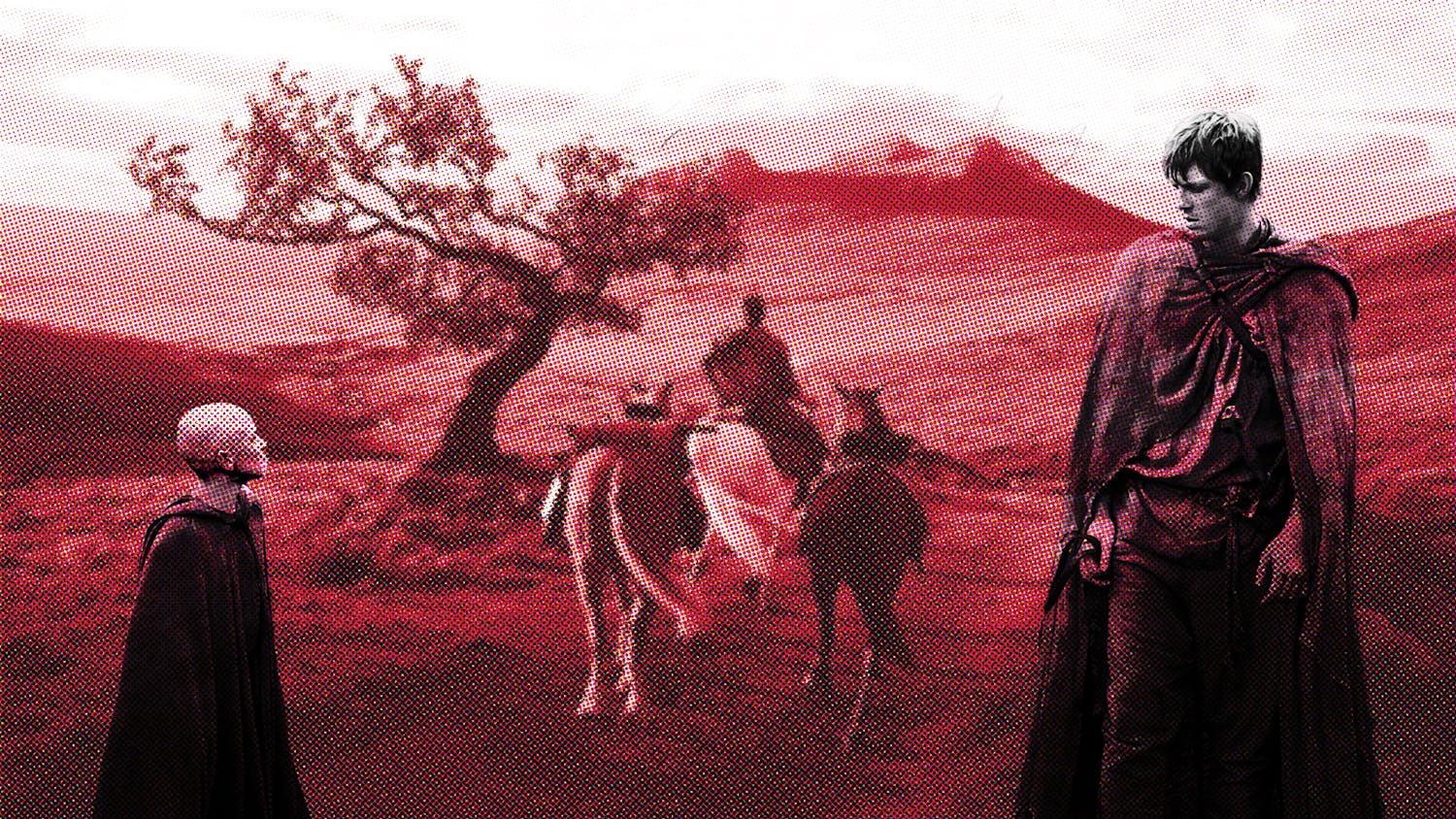In 2009, indie rock band The Antlers released Hospice, a concept album using the love story of a hospice worker and a patient with terminal bone cancer as a metaphor for one of frontman Peter Silberman's old relationships. "To an extent it's autobiographical," Silberman said in an interview with The Village Voice, "but I guess the best way to say it is that there's a few ways to lose someone. It's not always through death, even if it resembles death." The message resonated with fans and critics alike: Pitchfork awarded the album with a "Best New Music" stamp upon its release before ranking it #37 of the best 50 albums of 2009, while Beats Per Minute crowned Hospice the best album of the year.
The Antlers would go on to release two more albums, 2011's Burst Apart and 2014's Familiars, as well as the EPs (together) and Undersea in 2011 and 2012. After the 2015 Familiars tour, however, there was radio silence from the band. Silberman revealed to Paste in 2017 that he had been diagnosed with several acoustic conditions permanently impairing his hearing, and that The Antlers were "just in a big period of flux … with everybody following individual paths and resettling." Later that year, when a Twitter user inquired as to how long the band's hiatus would last, they responded "probably forever … sorry dude."
Forever came to an end, however, when the Antlers announced that, in honor of the album's ten–year anniversary, they would be repressing Hospice on white vinyl and embarking on an acoustic tour playing the album in its entirety. That tour included a stop at World Cafe Live in Philadelphia on March 27.

World Cafe Live goes out of its way to provide a small and intimate experience for concertgoers: for a seated show, the downstairs has a capacity of only 300, and those seats sold out the day tickets went on sale. The 300 lucky audience members were placed at long rows of seats perpendicular to the stage, which helped to create an atmosphere of community and allowed strangers to share tables and converse between sets about the band they all love.
Tim Mislock took the stage first, performing half an hour of self–proclaimed “ambient slurm jazz” from his 2017 album Now Is The Last Best Time, inspired by his mother's work caring for her husband after his Alzheimer's diagnosis. Both acoustically (with the haunting and almost mystic sounds he was able to generate with one guitar and a series of effects) and thematically (with a love story set against a brutal diagnosis), Mislock served as a suitable apéritif for the incoming set.
As it turned out, Mislock would return later that evening, playing electric guitar for a triumvirate of Antlers that consisted of Silberman singing and playing acoustic guitar, and drummer Michael Lerner, equipped with only a snare drum and series of sticks and brushes. They played seated, never stopping to speak other than a quick "Thank you," after a particularly hearty round of applause. Instead, they were committed to the music, which was a different kind of melancholy with the acoustic setup: Rather than the almost dreamlike, ambient sound on the recording, the guitar–focused set allowed Silberman's voice and lyrics to come to the front. This grounded the ethereal album and allowed the audience to feel every cutting line even more viscerally. Once the final chords of "Epilogue" faded away, the crowd vaulted into a standing ovation.
More and more artists recently are using the same strategy that the Antlers employed, performing an album front to back on a certain anniversary: singer–songwriter Dar Williams did a "Return to Mortal City" in 2016, twenty years after her sophomore release, and Streetlight Manifesto jumped from a 2017 Somewhere in the Between ten–year anniversary tour to a celebration of Everything Goes Numb's fifteenth birthday the next year, with a short break in between for Keasbey Nights to turn twenty. As far as these albums go, however, Hospice is perhaps the most suited to being performed in this fashion: Silberman said in the Village Voice interview, "I think there is merit to singles and individual songs, but when you have an album that's its own world, it's something special."

The audience was in a state of silent and suspended animation, fully enthralled in the music before them and often driven to tears at least once—or perhaps once per song. That special mood was felt not just by the fans, but by the band as well. Silberman took a moment to thank everyone who supported the Antlers, not just when Hospice was first released but on the current tour as well. Silberman told Pitchfork upon the album's release that "Hospice has a happy ending—the takeaway point is not necessarily the damage done, but the self–determination," This is the energy that was felt as the Antlers left the stage on what might be their last tour. A melancholy pervaded the venue after their final bows—the knowledge that this had been a one–time opportunity to hear Hospice performed in such a manner. But in it was a glimmer of light, celebrating the concert's duration more than its end.







